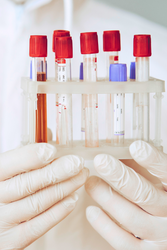The Lifeblood of the Lab: A Complete Guide to Laboratory Consumables
20th Mar 2024
Every groundbreaking discovery, every medical breakthrough, every scientific advancement – behind them all lies the meticulous world of the laboratory. And within the lab, a crucial category of supplies keeps the wheels of research turning: laboratory consumables.
But what exactly are laboratory consumables? Unlike the more permanent lab equipment, consumables are the workhorses of the scientific process. These are the items that are used, used up, and frequently replaced. They play a vital role in ensuring the accuracy, efficiency, and safety of laboratory procedures.
The Diverse World of Consumables
The variety of laboratory consumables is vast, catering to the diverse needs of different scientific disciplines. Here's a glimpse into some of the most common types:
- Plasticware: Beakers, flasks, centrifuge tubes, cuvettes, Petri dishes, and pipettes – these are the workhorses of a biology or chemistry lab. Often made from polypropylene or polystyrene, they offer a high degree of chemical resistance, transparency, and disposability.
- Glassware: While plasticware dominates modern labs, glassware remains essential for specific applications. Borosilicate glass, known for its heat resistance and chemical inertness, is used in flasks, beakers, and measuring cylinders for tasks involving high temperatures or strong chemicals.
- Filtration Supplies: Filter paper, membranes, and funnels are crucial for separating solids from liquids in various laboratory procedures, from purifying solutions to isolating biological samples. They come in various pore sizes and materials to suit specific filtration needs.
- Pipette Tips: These disposable tips, attached to pipettes, enable the accurate measurement and transfer of small volumes of liquids. They are available in different sizes and materials, sterilized for various applications.
- Gloves: A cornerstone of lab safety, gloves protect researchers from harmful chemicals, biological agents, and allergens. Nitrile gloves offer a good balance of durability and protection, while latex gloves are preferred for specific tasks requiring high dexterity.
- Microscopy Supplies: Slides, coverslips, staining solutions, and embedding media are essential for preparing and analyzing samples under a microscope. These tools allow researchers to visualize microscopic structures and identify cellular components.
- Chemicals and Reagents: From basic solutions like acids and bases to specialized buffers, enzymes, and dyes, chemicals and reagents are the building blocks of countless laboratory experiments. Their purity and quality directly impact the accuracy of research findings.
- Kits and Assays: Pre-packaged kits containing specific reagents and protocols streamline many laboratory procedures, allowing for rapid and reliable analysis of biological samples. These kits are available for diverse applications, such as DNA extraction, protein quantification, and cell viability testing.
Choosing the Right Consumables: Factors to Consider
With such a wide array of options, selecting the right laboratory consumables is crucial for optimizing research results. Here are some key factors to keep in mind:
- Compatibility: Ensure the consumables are compatible with the intended application and the specific chemicals or samples being used.
- Sterility: For work with sterile samples or cell cultures, choose sterilized and disposable consumables to prevent contamination.
- Accuracy and Precision: For tasks requiring precise measurements, opt for high-quality, calibrated consumables to minimize errors.
- Cost-effectiveness: Balance cost with quality. While affordability is important, choosing overly cheap consumables can compromise experiment results and safety.
- Sustainability: Consider environmentally friendly options, such as reusable glassware or biodegradable plasticware, whenever possible.
Beyond the Basics: The Importance of Consumables
Laboratory consumables are more than just disposable tools. They play a significant role in the success of research by:
- Maintaining Sample Integrity: High-quality consumables help minimize contamination and ensure the accurate representation of the samples being analyzed.
- Promoting Reproducibility: Consistent use of reliable consumables allows researchers to replicate experiments and validate their findings.
- Enhancing Efficiency: Disposable consumables streamline workflows by eliminating the need for time-consuming cleaning and sterilization of glassware.
- Ensuring Safety: Personal protective equipment like gloves minimizes the risk of exposure to hazardous chemicals and biological agents.
Conclusion: Stocking Your Lab for Success
By understanding the diverse world of laboratory consumables and making informed choices, researchers can equip their labs for optimal performance. From ensuring accurate measurements to maintaining sample integrity and prioritizing safety, laboratory consumables are the silent partners driving scientific progress. So next time you witness a groundbreaking discovery, remember the crucial role these seemingly simple supplies play in making it all possible.
Contact us today to learn more about how we can help you achieve your healthcare supply chain goals.
(732) 447-1100 // info@cenmed.com

